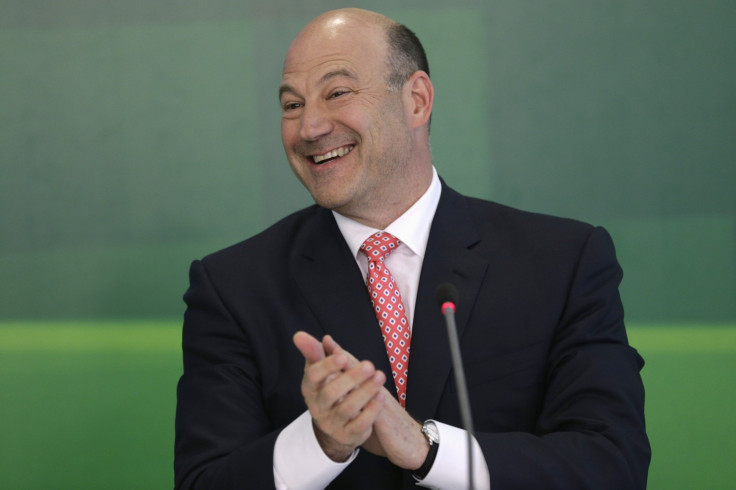Goldman Sachs Stock Surges As Trump Taps Goldman COO For Top Economic Job

Goldman Sachs stock price is rocketing upwards, as President-elect Donald Trump stacks his administration with bankers and former employees from the firm.
On Friday, President-elect Donald Trump reportedly asked the number two executive at Goldman Sachs, Gary Cohn, to head up his National Economic Council (NEC). Cohn is a 26-year veteran of the firm and has served as president and COO for the last decade. He’s the first current Goldman employee to be tapped for a high-level role in the Trump administration.
Last month, Trump announced he’d appoint former Goldman banker Steve Mnuchin as treasury secretary. Trump's senior advisor Steve Bannon also worked at the bank in the 1990s.
Read: Trump's Hate-Love Relationship With Goldman Sachs
Back in September, Goldman Sachs released a memo reassuring clients that, no matter who won the upcoming election, there would be no shortage of money-making opportunities for the firm. That forecast seems to have been spot on: In the month since the election, Goldman shares have climbed nearly 25 percent amid a broader stock market surge that’s been dubbed the “Trump rally.”
Trump and his economic team have promised to roll back banking regulations while lowering corporate taxes. Goldman Sachs CEO Lloyd Blankfein — who supported Hillary Clinton during the campaign— has since warmed to a Trump presidency. “The declared policies of Mr. Trump are therefore a good thing.... [he] may turn out to be a much better president than anyone else might have been in that place,’’ Blankfein told the German newspaper Handelsblatt on Thursday. “I am not pessimistic at all because he won.”
Cohn holds $212 million in Goldman stock. He‘ll have to sell it — but like other government appointees, can delay paying capital gains taxes thanks to a special clause in the tax code.
The appointment of Goldman Sachs bankers to key government posts is not new: President Bill Clinton and President George W. Bush tapped Goldman Sachs senior executives as treasury secretaries.
But for Trump, it's something of a reversal. During the campaign, he repeatedly railed against Goldman Sachs: He attacked Ted Cruz during the primaries for taking a loan from the bank, and said Goldman had “total control” over Hillary Clinton, who gave a number of paid speeches to its employees behind closed doors.
Since his victory, Trump has modulated his tone. He told a crowd in Ohio last week that he didn't want to appoint an advisor who'd “failed all his life.” Instead, he promised to surround himself with succesful bussiness people. “I am going to be putting on the greatest killers you’ve ever seen,” he said.
After the Cohn story broke on Friday, Mnuchin, who’s become the most visible surrogate for Trump’s economic policy, told CNN that the Trump presidency would mark an end to unwarranted attacks on bankers. “The cabal against the bankers is over,” he said. “We need to bring country together.”
Cohn, a registered Democrat, wrote checks for over $25,000 to the Democratic Senatorial Campaign Committee in 2006, 2007, and 2008. He’s also given money to Republicans including onetime Trump rival Marco Rubio and Missouri Sen. Roy Blunt, according to FEC filings.
As head of the NEC, Cohn would exercise significant influence over economic policy — but, unlike the treasury secretary, the appointment does not require Senate confirmation. George W. Bush’s NEC chief, Lawrence B. Lindsey, helped push for a $1.3 trillion tax cut, and Obama’s former NEC head Gene Sperling is credited with engineering the $447 billion American Jobs Act.
More:
© Copyright IBTimes 2024. All rights reserved.





















